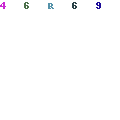One drop event trickles down knowledge of water conservation to SIUE students
Sociology professor Connie Frey-Spurlock said the idea behind one drop water conservation fair was to raise awareness about sustainability, and one form of educating others about this was to let people know they use water in less obvious ways.

Connie Frey-Spurlock's Soc 590 class organized a one drop conservation fair in March. Frey-Spurlock said green jobs are growing in demand.
She and sustainability graduate assistant Victoria Peters organized one drop which was held at the MUC Goshen Lounge March 4.
Students in Frey-Spurlock’s sociology and sustainability class were led by Peters to put together activities for the fair. They set up a Jeopardy game about water conservation; a Selfie contest where students could post a selfie of themselves refilling their water bottles and post them online; and Bingo games that featured sustainability groups on them as part of the event.
Peters said they had a really good turnout.
“While I didn’t know where the students were coming from for the vendor fair, they were interested and excited about it. They wanted to know more,” Peters said.
She added that the Jeopardy table Frey-Spurlock ran was the biggest table. It had questions like ‘How much water is used to make four tires?’
“They were so excited about it. Students would come by and say, ‘I’m so glad I walked through it. I learned so much and I hope that it comes back,’” Peters said.
Frey-Spurlock said the fair was educational and she thought everyone who participated realized they did not know everything they thought they knew about water–information about daily use.
“They just weren’t aware of, for example, that most of the water that we use in our house comes through the toilet. There are some folks who were really shocked by that,” she said. “They thought that washing cars or things like that would more water reliant but it’s flushing the toilet that really uses most of the water in the house.”
The sociology club, the Office of Sustainability and student organization of sustainability were present. The Bike share program, SIUE natural connections, Wellness @ SIUE Fitness Center and other groups were on hand to share their knowledge.
The zip car program, for instance, was at the event to inform students that they can rent a car on a short term basis. They also talked about car sharing.
That and bike sharing—versus having your own private car, according to Frey-Spurlock, save water.
Peters said sustainability is about connecting with the community and the campus.
“So by doing something like this that got the students out of the classroom, it really helped them connect with people and learn about sustainability…and then to teach students like that rather than just studying it in the college classroom,” she said.
Frey-Spurlock said that was one of the learning goals of the class– to learn how to communicate sustainability to all kinds of different people.
“That’s really what the event was about,” she said. “They did a really good job at that.”
Peters said through her graduate assistantship she is focusing on sustainability in higher education and ways to implement sustainability into the curriculum such as biology and business.
Frey-Spurlock said the university is not in worse shape than it is now in terms of finances because of sustainability.
She noted energy cost savings through windows that were put on Rendleman Hall that reduced significant energy costs for that building, and the restrooms that use automatic flush and automatic water for faucets.
“They all save money and water and energy,” she said. “We think that a truly sustainable campus is one that is maybe the most cost-effective method of running a campus.”
She added that the more sustainable we become, the better equipped our students are to go into green jobs and to face the issues of tomorrow or today for that matter.
“Green jobs are absolutely growing,” Frey-Spurlock said.
Filed Under: Sociology & Criminal Justice












